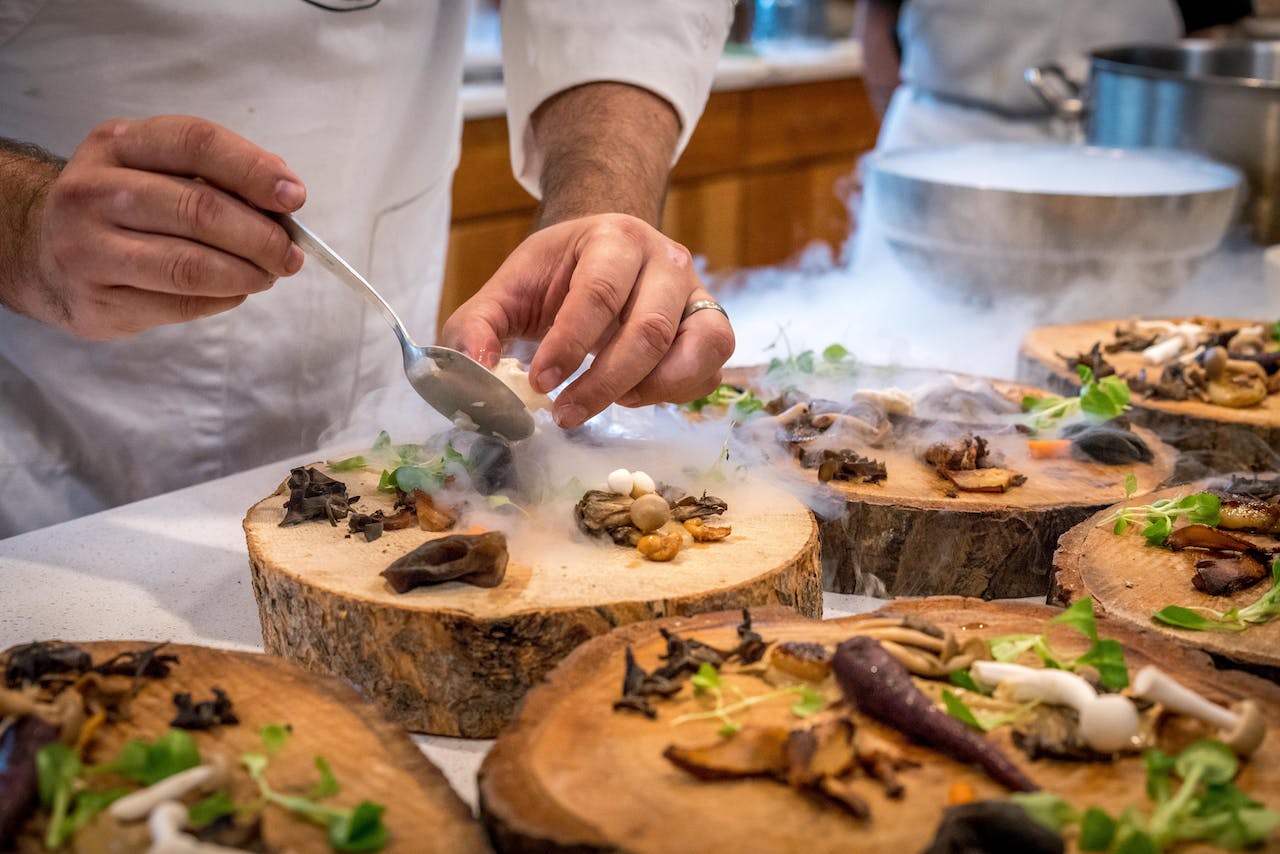The world of culinary arts is a vibrant and exciting field that offers a myriad of opportunities for aspiring chefs, bakers, restaurateurs, and food enthusiasts. However, embarking on a culinary career requires careful consideration and readiness to ensure a successful and fulfilling journey. For instance, if you wish to make healthy meals, you can choose a meal like a healthy strawberry rhubarb pie and perfect your recipe. In this article, we explore essential factors to ponder when venturing into the culinary industry, guiding those who aspire to make their mark in the culinary world.
Passion and Commitment
 Passion is the secret ingredient of every successful culinary professional. Ask yourself if you genuinely enjoy cooking, experimenting with flavors, and exploring new ingredients. A culinary career demands dedication, hard work, long hours, and continuous learning. Assess your commitment to the craft and evaluate if you are willing to invest the time and effort required to thrive in this dynamic industry.
Passion is the secret ingredient of every successful culinary professional. Ask yourself if you genuinely enjoy cooking, experimenting with flavors, and exploring new ingredients. A culinary career demands dedication, hard work, long hours, and continuous learning. Assess your commitment to the craft and evaluate if you are willing to invest the time and effort required to thrive in this dynamic industry.
Education and Training
Formal culinary education or training can provide a solid foundation for your career path. Consider enrolling in culinary school to gain fundamental knowledge, hone your skills, and learn from experienced professionals. Look for reputable institutions that offer comprehensive programs tailored to your culinary interests, whether it be culinary arts, baking and pastry, or hospitality management.
Specialization and Culinary Niche
Identify your culinary niche or area of specialization. Do you have a passion for French cuisine, baking, vegan cooking, or farm-to-table concepts? Finding your culinary niche allows you to develop expertise and stand out in a competitive market. Explore apprenticeships, internships, or job-shadowing opportunities to gain hands-on experience in your chosen field.

Industry Experience and Networking
Developing a robust professional network is crucial in the culinary world. Seek opportunities to work in various culinary establishments, such as restaurants, hotels, catering companies, or even food trucks. Valuable industry experience not only enhances your culinary skills but also exposes you to different culinary techniques, kitchen environments, and mentorship from seasoned professionals.
Financial Considerations
Entry-level positions in the industry may not yield high salaries initially, so be prepared to start at the bottom and work your way up. Evaluate personal finances, student loans, or potential sources of funding for culinary education. Familiarize yourself with the business side of the culinary industry, including budgeting, profit margins, and cost control, if your goal is to open your establishment eventually.
Work-Life Balance
The culinary industry is known for its demanding and unpredictable hours. Long shifts, evenings, weekends, and holidays are common in this field. Understand that maintaining personal relationships and self-care are equally important as your culinary ambitions. Seek supportive work environments that value work-life balance and prioritize employee well-being.

Adaptability and Creativity
Culinary careers require adaptability and creativity. The industry is constantly evolving, influenced by food trends, customer preferences, and cultural shifts. Stay updated on emerging culinary techniques, culinary technology, and dietary trends. Embrace innovation, experiment with new flavors and ingredients, and continuously challenge yourself to remain at the forefront of the culinary landscape.
Conclusion
Venturing into a culinary career can be a rewarding and fulfilling journey for those who have a passion for food and are willing to put in the effort. By considering factors such as passion and commitment, education and training, specialization, industry experience and networking, financial considerations, work-life balance, adaptability, and creativity, you can lay the foundation for a successful culinary career. Remember, with the right blend of dedication, skill development, and a dash of creativity, you can create a recipe for success in the culinary world.




